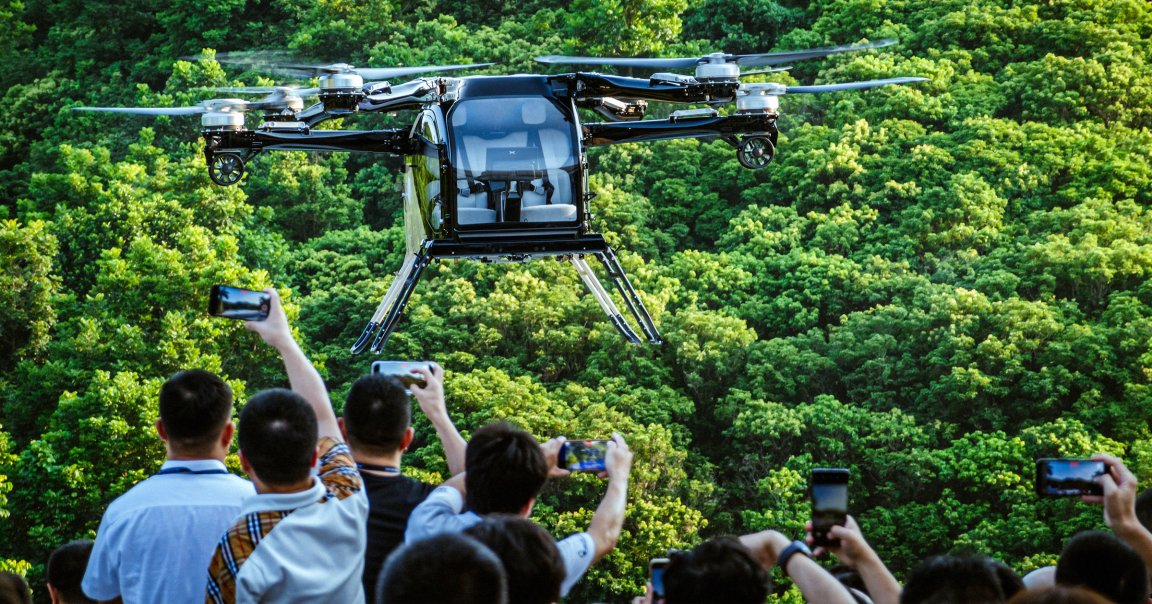
Two flying cars collided with each other during an airshow rehearsal in Changchun, a city in northeastern China.
Videos on social media show emergency response vehicles at the scene as a big plume of dark smoke billows from one of the wrecks.
Fortunately, it doesn’t sound like anybody involved in the crash between the two electric vertical take-off and landing (eVTOL) vehicles, developed by the Xpeng AeroHT subsidiary of EV giant Xpeng, was seriously hurt.
However, one unnamed company employee told CNN that one pilot had sustained minor injuries.
“All personnel at the scene are safe, and local authorities have completed on-site emergency measures in an orderly manner,” the company said in a statement to the broadcaster.
The two aircraft, which feature six large rotors each, collided due to “insufficient spacing,” according to the statement. One of them “sustained fuselage damage and caught fire upon landing.”
Xpeng AeroHT’s flying cars are part of China’s ambitious plans to realize a “low-altitude economy” up to two thousand feet above the ground. The Communist Party has endorsed the development of the vehicles in an attempt to turn them into an everyday reality, as The Economist reported earlier this year.
And given its EV and battery manufacturing prowess, China is in a powerful position to do just that.
However, the incident shows that there’s still plenty of work to do to ensure that they’re safe and ready to become a fully-fledged mode of transportation.
The company is hoping to sell the vehicles for around $300,000 each and has said that it has collected 3,000 orders so far, the BBC reported in the wake of the crash.
Until flying cars have a chance of becoming a common sight, China has turned its attention to making drone deliveries for mail, food, and medical supplies. According to CNN, there are already 20,000 companies operating unmanned aerial vehicles in the country.
More on flying cars: New Zealand May Soon Get a Flying Taxi Service